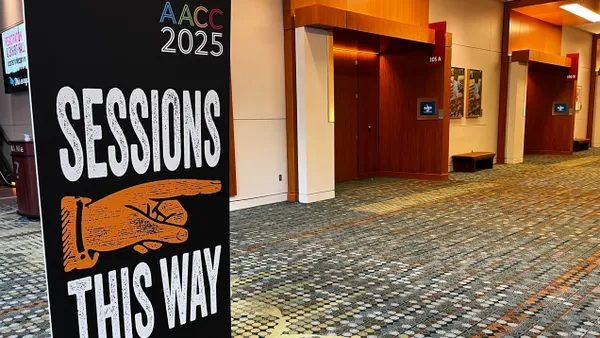After-hours mental health care is not something that colleges and universities can continue to ignore—it’s a necessity. Research from the American Academy of Sleep Medicine (AASM) shows that suicides are more likely to occur between midnight and 4:00 a.m. Data from studying over 35,000 suicides confirmed a peak suicide rate over 16% between 2:00 a.m. and 3:00 a.m. compared to the mean suicide rate per hour of roughly 2%. This is the question for higher education professionals: Is your after-hours mental health care providing the support students need?
Of course, suicidal ideation is not the only mental health concern on the rise. Studies show that young adults are also struggling with stress, anxiety, depression, eating disorders, and substance abuse. A report from the Centers for Disease Control and Prevention (CDC) found that mental health problems rose from August 2020 to February 2021, with some of the largest increases among people aged 18 to 29. The report found that about 57% of that age group said they had experienced symptoms of anxiety and depression within the last seven days. This was an increase from 49% at the beginning of the survey period.
TimelyMD internal data parallels broader findings of the rise of mental health concerns for college students. Student mental health visits on TimelyCare—TimelyMD’s virtual health and well-being platform for students—nearly quadrupled from August 2021 to October 2021. Four out of ten visits occurred after regular counseling center hours and/or business hours. During this time period, 92% of students seeking mental health care utilized scheduled therapeutic counseling or on-demand emotional support. The remaining 8% sought support through psychiatric care or health coaching.
The ways that virtual health care complements campus resources
For campuses that already have health care services, virtual health and well-being services offer 24/7/365 access that extends beyond business hours. “With 24/7 access to mental health resources, students can still access a supportive, knowledgeable provider even when the counseling center is closed,” said Dr. Jan Hall, TimelyMD director of curriculum development and complex case management. “At the end of the day, into the night, and even on weekends, students can receive emotional support for any need, including critical situations. The flexibility of virtual health care enables students to get support anytime and anywhere, which is particularly beneficial if the student is not on campus.”
Another side of seamless access to care is continuity of care, which enables students to have a seamless experience whether seeing a virtual or in-person (on campus) provider. Consistent, quality care, along with high-touch support and appropriate technology integration, make this possible. This type of support assists with health literacy and helps students follow through on care plans.
Virtual health care services accommodate surges in patient volume and enable health centers to handle an influx of patients by remotely accessing an expanded network of licensed, board-certified physicians, nurse practitioners, physician assistants, licensed counselors, and behavioral health specialists. If a student requires in-person care for health care needs, the virtual health provider can provide a referral to the appropriate facility or resource based on the institution’s protocols.
Virtual health services vary, but TimelyMD’s partnerships with higher education institutions enable students to access no-cost medical and mental health visits, which removes financial and/or insurance worries. This removes barriers to care like affordability and out-of-state or out-of-network provider issues.
As budgets get tighter in higher education, decision-makers have to move beyond simply cutting budgets to looking at efficiently and effectively allocating resources. Virtual health care provides efficient, cost-effective access that optimizes existing health care resources to provide care for students when and where they need it. And for the more than 20% of higher education institutions that do not offer health services, a virtual health and well-being platform can serve as the primary source of healthcare for students.
Each institution and student population has unique needs, but the benefits of virtual health care are clear for higher education. And, studies confirm college students are ready to use virtual health care as a mental health resource. In a survey of college students by TimelyMD, 75% of students said they’re open to utilizing telehealth to receive mental health care. And 20% of students shared that they “definitely would” consider using telehealth for mental health support. A case study reported that students consistently rated TimelyMD mental health providers highly, with on-demand emotional support providers rated on average 4.67/5.00 and scheduled counseling providers rated 5.00/5.00.
Care delivered virtually is fast, easy, and efficient. It eliminates wait times, reduces the stigma of seeking mental and medical care, and perhaps most importantly, is available the moment a student needs care. When students don’t have to wait days or weeks for a counseling center appointment, there is a positive effect on campus health and wellness. And the benefit extends to prospective students evaluating mental health services at schools as a differentiator.
Contact TimelyMD to learn how a virtual health and well-being platform can make a difference in the lives of your students.










